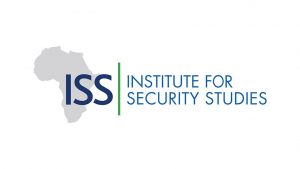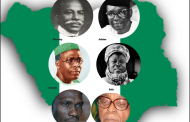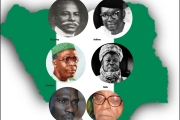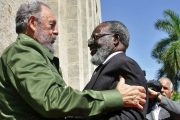A new policy brief that counter-insurgency operatives in East and West Africa in particular might want to look at has emerged. Published July 24th, 2019 by the Pretoria based Institute of Security Studies, the brief has been written by Dr Akinola Olojo, a Nigerian expert introduced by the think tank as a senior researcher in the Transnational Threats and International Crime Programme in Pretoria. Before being in Pretoria, Olojo was a Visiting Scholar at the Institut d’Études Politiques (Sciences Po), the French equivalent of the London School of Economics and Political Science. He had also been Visiting Research Fellow at the International Centre for Counter- Terrorism (ICCT) at The Hague.

Cover of the Policy Brief
The lengthy brief, (slightly over 5000 words) is saying that there is no reason not to explore negotiating with terror groups even as sensitive and difficult as that could be. According to the review, “The campaign against terror groups in the Lake Chad Basin and Horn of Africa relies heavily on the use of force as a strategy. However, this approach is yet to deliver a sustainable solution”. And so, the author thinks that there is no harm in embarking on an option considered complementary to existing counter-terrorism approaches, notwithstanding the sensitivity and complexity involved.
The author’s hint of the sensitivity and complexity is, for instance, there in the introductory portion of the brief talking about how complex in their membership all the three terror groups under focus are. These are Al-Shabaab in Somalia/East Africa and Boko Haram in West Africa. The argument is the primacy of the framework of dialogue and communication strategies reflecting the sense of complexity of the complexity of composition of these groups as a success factor in adopting negotiation. But there is the insistence on breaking the deadlock of the limited successes of the use of force by adding negotiation to the counter-terrorism package. Success, as the argument goes, will be guaranteed provided there is a good reckoning with the ideological objectives, structures and strategies of terror groups.

The Pretoria based think tank which published the brief
Not only is it the author’s view that external actors can play but a more constructive role than air-strikes described as counter-productive and unsustainable, he also believes the governments of Nigeria and Somalia consult extensively with local communities with a view to determining acceptable third parties. Healing in communities through a Truth and Reconciliation mechanism is not left out.
It dismisses the popular notion which tends to equate dialogue with terrorists as a sign of weakness, saying the persistence of insecurity to date must mean that more than a militarized approach is required to sort out the problem. The brief did not fail to draw attention to the Global Terrorism Index ranking of Boko Haram as the deadliest terror group globally at the height of its At its height in 2014. Similarly, it references the listing of Al-Shabaab and Boko Haram among the four deadliest terror groups in the world by 2018 as well as along with Boko Haram’s breakaway faction, the Islamic State West Africa Province (ISWAP), as representing the most significant terrorist threats to countries in the Horn of Africa and the Lake Chad Basin.
As a freely downloadable stuff, it is assumed those conducting the counter-insurgency operation across Africa would take a look at the alternative argument. Not only is it written by an African with cultural sensitivity, it is also by an expert rather than a pundit. Above all, ISS which published it has a track record in researching for the African Union. The Government of Norway which funded the publication has a legacy of an honest broker in this and other manifestations of the ‘African condition’




























